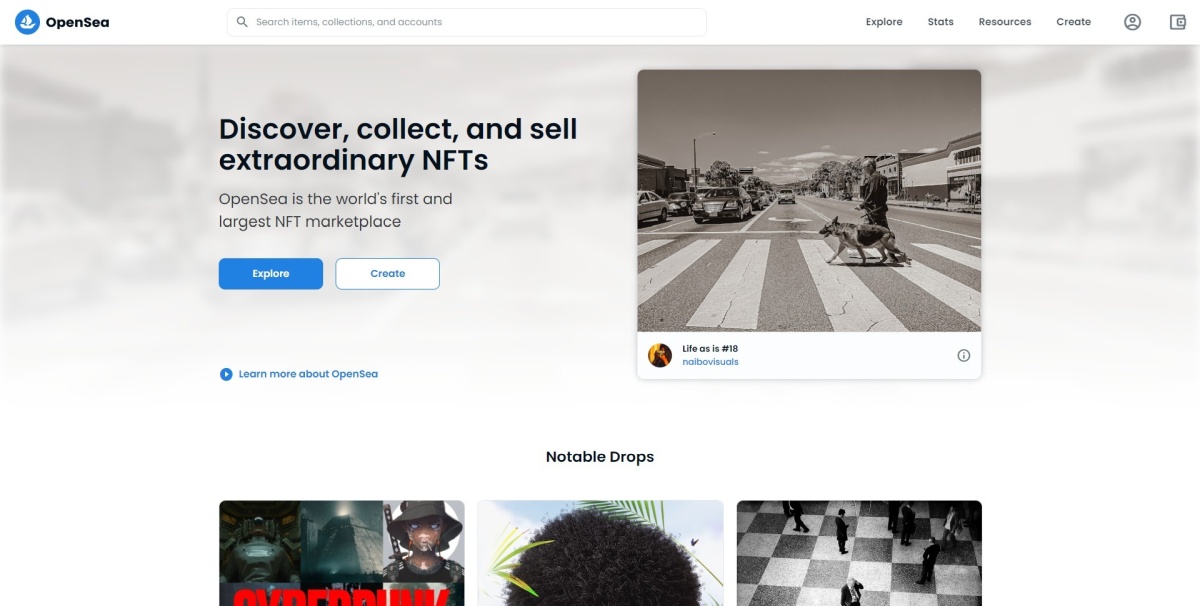It looks like well-known NFT online marketplace OpenSea can’t catch a break. Last we’ve heard of the platform was regarding a major exploit that enabled attackers to purchase NFTs at below market value and later reselling them for large profits. This week, the platform has caused another stir among its users when it suddenly placed a restriction on its free minting tool – a decision that they backtracked shortly after receiving quite the backlash from its community.
For context, OpenSea’s minting service allows users to create and list an NFT without having to pay a “gas price”, which is basically a fee that crypto miners charge to write new data to a blockchain. Initially available to users without any restrictions, the platform suddenly updated its collection storefront contract without warning during the weekend – limiting its tool to only create up to five collections and 50 items per collection.
To address feedback we've received about our creator tools, we updated our collection storefront contract limits to only support the creation of up to 5 collections and 50 items per collection.
— OpenSea Support (@opensea_support) January 27, 2022
As mentioned earlier, the move was met with negative feedback and the restriction was removed on the following day. But what’s interesting is the reasoning behind why OpenSea had decided to implement the change in the first place. According to a follow-up thread posted on Twitter, the platform revealed that it has seen an exponential increase of misuse of its free minting tool, where 80% of NFTs that were created with it have been confirmed to be fake, plagiarised, and spam.
“Every decision we make, we make with our creators in mind. We originally built our shared storefront contract to make it easy for creators to onboard into the space,” OpenSea tweeted. “In addition to reversing the decision, we’re working through a number of solutions to ensure we support our creators while deterring bad actors.”
However, we've recently seen misuse of this feature increase exponentially.
Over 80% of the items created with this tool were plagiarized works, fake collections, and spam.— OpenSea (@opensea) January 27, 2022
Additionally, the platform promises to first preview any significant changes with its community before rolling them out. OpenSea did not reveal what it plans to do with the large number of bogus NFTs that have been discovered in its marketplace at this time.
While there have been many success stories involving individuals who’ve managed to make a fortune from selling NFTs, there are also plenty of negative ones around. Plagiarism and scams being the most common from the latter, with thieves impersonating content creators, artists, and photographers on marketplaces to sell artworks stolen from them. Hopefully OpenSea’s official recent acknowledgement will finally see it addressing the issue, or at least provide a wider awareness among the NFT community.
Follow us on Instagram, Facebook, Twitter or Telegram for more updates and breaking news.


